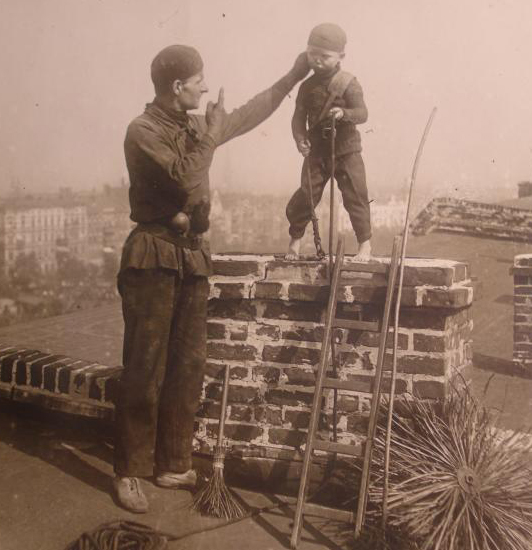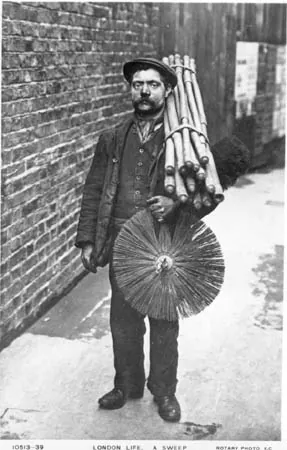
The chimney sweep, or climbing boys as they were often called, was a harsh profession to be in and most likely one that would severely cut your life short.
Those employed were often orphans or from impoverished backgrounds, sold into the job by their parents.
With young boys employed to work in extremely dangerous conditions, some as young as three, the practise was remarkably widespread and socially acceptable for quite some time.
The earliest days of chimney sweeps involved a filthy and difficult job performed for the wealthy who lived in large estate homes and castles, such as Leeds Castle in Kent, England. Then the trend of installing chimneys caught on. While at first it was only the ruling class who enjoyed a fireplace and chimney, before too long the working class began requesting fireplaces in every room of their home.
Cleaning the inside of the soot-filled chimney flues was a difficult and dangerous job because of the narrow chimney flues and the amount of soot the sweepers were exposed to. For this reason, the job was left to poor orphan boys brought in by the chimney master or children sold by their parents into the trade. The children served as indentured servants to their master; in exchange for a home and food and water the children were taught the trade. The children climbed into the chimneys to scrape off the coal deposits and brush the walls with little scrubber brushes.
The conditions were harsh and the work was hard. Children were often scared to climb into the narrow passageways, so to give them a little extra encouragement the chimney masters would light a small fire under the child to coax him up the interior walls, hence the start of the expression, “to light a fire under you”. The life of a ‘climbing boy’ was not just undesirable but dangerous as well. Because they worked and lived in the soot and grime of the chimneys, the children often developed respiratory problems and other related issues. Fatal falls from rotting chimneys were not uncommon either. William Blake, an English poet, illustrates the difficult life of a chimney sweep boy in his poem, “The Chimney Sweeper”.
In 1842 Parliament passed a law prohibiting sweeps from employing children to go up chimneys – but this did not stop them using their own children to do this horrible work. Some used their own children (both boys and girls) as young as four or five years old to go up chimneys. Finally in 1864 after many years of campaigning an Act of Parliament finally approved by the House of Lords, outlawing the use of children for climbing chimneys. Lord Shaftsbury’s Act for the Regulation of Chimney Sweepers established a penalty of £10 pounds for offenders. The Act had wide spread support from the police, public and courts which finally signalled the end of ‘climbing boys

Or if you have any questions contact ‘The Sweep Guy’

